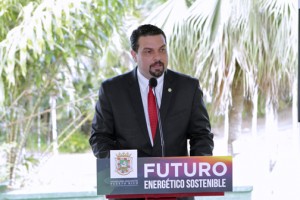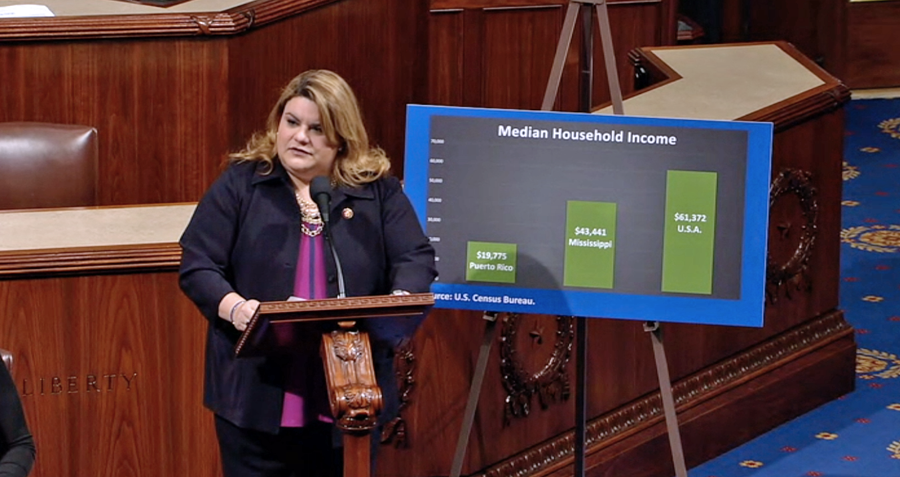Telecom execs: PUC is ‘not viable option’ for island


Telecom and energy issues should be kept separate, industry executives say. (Credit: © Mauricio Pascual)
Last Thursday, the Puerto Rico senate approved a substitute bill that consolidated several of the measures that had made the leaders of the telecommunications industry unanimously oppose any possible changes to Law 213, known as the Telecommunications Law. Now that the Senate has passed the bill onto the House of Representatives, confusion still reigns in regard to what the creation of a Public Utility Commission could mean for the telecommunications industry.
PUC explained
Javier Rúa-Jovet, president of the Puerto Rico Telecommunications Regulatory Board, clarified several misconceptions regarding the purpose of the proposed PUC during an exclusive interview with this media outlet Monday.
Rúa-Jovet explained that “as a candidate, the governor proposed an energy platform that included an external regulatory board. Then as governor, he issued an executive order which called for the discussion of the reform.”
As a result, the chief continued to explain, Rep. Javier Aponte-Dalmau presented a bill to the House that proposed an external regulatory board for the energy sector that would be built upon the TRB. In the Senate, President Eduardo Bhatia proposed an external regulatory board that would oversee just the energy sector. Meanwhile, Fortaleza proposed an external regulatory entity; a new agency that succeeds the TRB: the Public Utility Commission.
“The logic behind the governor’s proposal is to prevent governmental gigantism by creating [an agency] within an existing one,” Rúa-Jovet said.
“Contrary to what has been said, that the proposal blends telecommunications with energy, what would be created within a single agency would be two separate panels: one for telecommunications and cable TV and another for electricity and each would have three members. The electricity panel would have two energy commissioners and the third would be the president of the agency. It would be the same for telecommunications, where the president would fluctuate between panels as the third vote. These are two different chapters; we would not use telecommunications law to regulate energy and viceversa.”
The TRB is a self-sustaining agency that collects fees from registered telecom carriers, with which it covers its operations. If the PUC were to be approved, it would use a similar business model. To do so, it would not need to collect additional fees from telecom carriers. It would, however, need to collect a regulatory fee to sustain the energy section of the commission but the money would be drawn from the Puerto Rico Electric Power Authority’s already existing funds.
“We would be building with the full backup of the current TRB. The new money coming in would got to specifically address the energy regulation such as hiring specialized lawyers, engineers, etc. This ensures a fast start for the agency because there is no need to look for buildings or administrative staff and the consumer would not feel its impact because it would use money that already exists. It would be a free agency from the budgetary standpoint that is in line with the government’s approach to reduce the budget,” Rúa said
Telecom leaders continue to oppose PUC
“We’re still very worried, still really feel that they want to combine these boards and that would mean changes to [law] 213,” said David Bogaty, president of WorldNet Telecommunications, Inc. “The TRB has built the experience and solid track record in telecommunications. Their work is too important to be jeopardized with the confusion of adding energy.”
“My concern is that what this government so far is doing is that by trying to find ways to fund the government, they are hurting the economy further and digging the hole deeper,” Bogaty said.
He believes that if the government is looking to combine agencies to reduce costs, it should look at those that could work together. He further warns against putting “in jeopardy one of the pillars of the economy, which is telecommunications, by combining another pillar of the economy, which is energy. That is an unnecessarily dangerous thing to do. I can’t think of two bigger drivers of the economy than those two.”
Bogaty also expressed concern with regards to the way in which the PUC would fund itself for, “in the combination of it, they were looking at funding energy. If you do this wrong and it doesn’t work, the amount of millions, hundreds of millions that are going to be wasted, so far outweigh the cost it would take to create a board and do it right.”
The executive believes that the best way for Puerto Rico’s economy to improve is to focus on “policies that encourage economic growth, addressing the factors that keep us high in the World Economic Index.”
For his part, Jorge Martel, general manager of T-Mobile Puerto Rico, concurred that telecom and energy issues should not be combined.
“And while we understand that the island’s energy problem is critical and affects us all, we think they are two completely different industries,” said , adding that the Senate’s current energy reform bill is the “most viable.”
With regards to creating a PUC — which are common in many stateside jurisdictions — Martel said the mainland states “don’t have the energy problems that we have.”
“Many of the states that have them have a very different regulatory framework thatn Puerto Rico has. Many don’t have an energy production and distribution monopoly like we do.”
Concern over PrepaNet
Prepa Networks LLC (PrepaNet) is a PREPA subsidiary that offers wholesale fiber-optics communications. Bogaty believes that PrepaNet would have an unfair advantage compared to companies in the private telecommunications market.
“When the government competes against its own economy, you are damaging that economy; stifling investment and economic growth,” he said.
Meanwhile, Rúa-Jovet said “the new concern over PrepaNet is that it will now enter more aggressively into the retail market, the consumer, in the provision of broadband service and that it would create a strong distortion in the market because it would not be a level playing field.”
However, he declined to further comment on the issue as it would be something that could come up in a complaint at the TRB.















